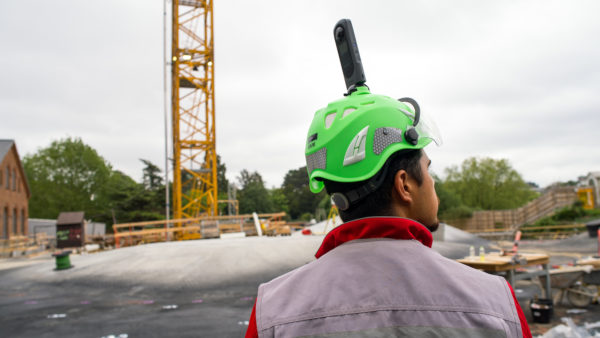Digital and other technological advances will cut the cost of road construction by nearly a third in the next 30 years, according to new research from McKinsey & Co.
The consultancy believes the combination of automation, digitisation, more durable advanced materials and narrower roads will mean the direct construction cost per lane-kilometre by roughly 30% by 2050, compared with today.
McKinsey highlighted automation technologies such as the deployment of lidar during surveying, digital twins, and machine-controlled excavators working in combination with geolocation services to excavate and grade substantially faster.
The report also mentioned the potential for sensors to be used for predictive maintenance, and the use of plastic in the asphalt mix to make roads more durable.
The width of road lanes could also be reduced from 3m-3.75m to 2.8m as autonomous vehicles achieve critical mass: their lane discipline is more precise than a human driver.
McKinsey suggests governments and construction companies should:
- Establish standards for smart roads – European governments could create alliances among relevant private-sector players to define the playing field for digitisation.
- Jump-start innovation through public procurement – European governments could fund pilot projects that focus on creative solutions for the construction of digital roads.
- New partnerships – traditional construction companies could partner with tech companies, such as sensor manufacturers, or analytics companies to design the data-capture systems, which will be a growing source of value.
- Leverage new financing models – new technologies also create opportunities for revenue generation. Road operators might explore how smart tolls or car-data monetisation could be new revenue sources.
- Build requisite skills and capabilities – traditional players will need to build the capabilities required to play in the more advanced landscape of digital roads, whether it is the skills that construction companies need to deploy automated machines, or the know-how that public works agencies need to develop standards related to car-data collection and management.
The report authors said: “Advances in road construction are fast approaching, and the time to act is now. The learning curve will be steep, but the long lead time – potentially more than 15 years – for planning and creating the conditions for constructing these new roads gives stakeholders time to prepare.”
Read the report: https://www.mckinsey.com/industries/public-and-social-sector/our-insights/road-work-ahead-the-emerging-revolution-in-the-road-construction-industry
Image: 198879478 © Ded Mityay | Dreamstime.com











